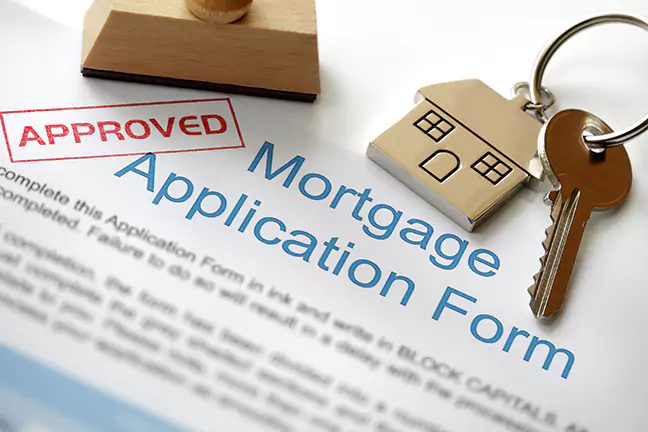Mortgage loans are a financial tool to help people purchase homes. There are various types, based on how they are legally structured as well as what they can offer to you. Some mortgage loans are best for those who have very good credit while others may offer lower interest rates if you’re buying a home in a rural area. Understanding the most common type of mortgage can help you make the best decision about the loan that’s best suited for you.
The Types of Mortgage Loans
The most common type of mortgage loan is a conventional loan, one that has a set interest rate for a period of 15, 20, or 30 years. These loans are provided by banks, credit unions, and specialized mortgage servicing organizations. This is just one option, and it’s not always the best option for all borrowers.
To help you see the differences in the various types of loans used today, consider the following.
Conventional Mortgages
The most common type of mortgage, a conventional loan, will have specific requirements set by the lender, including:
The minimum credit score a person needs
The debt-to-income ratio they will accept
The down payment requirements
Most of the time, conventional loans are available to those with a credit score of 620 or higher. Your debt-to-income ratio (which is the amount of debt you have compared to the amount of income you have coming in each month) needs to be 50% or lower. These loans typically require 5 to 20% down, though some may offer lower down payment requirements.
Understanding PMI
If you put down less than 20% on the loan, most lenders will require that you also purchase private mortgage insurance (PMI), which helps lower their risk of lending to you. This is an added monthly fee you must pay.
Benefits of conventional loans
Conventional mortgage lenders are best for those who
Can make a down payment (the larger, the better, but at least 3%)
You have a credit score of at least 620 and a low to moderate DTI ratio.
Conforming vs non-conforming loans
Conventional mortgages fall into one of two categories: conforming or non-conforming.
·Conforming loans: This means that the property meets Federal Housing Finance Agency (FHFA) standards, including those related to debt, loan size, and other rules. This allows for Fannie Mae and Freddie Mac, the two government-sponsored enterprises that back most of the mortgage market, to provide these loans.
Non-conforming loans: These do not meet FHFA standards, which often is due to the size of the loan that is higher than allowable. Other lenders back these loans.

Government Backed Mortgage Loans
Conventional loans can carry some significant challenges for borrowers, but other loan options can offer strategies to help you buy a home with less. The U.S. government offers a number of specialized loan programs that may make it easier for some people to qualify for a loan. Here are the most common types of government-backed loans.
FHA loans
A Federal Housing Administration (FHA) loan is one that’s backed by this federal organization (they do not fund the loan but rather provide a type of insurance product to lenders who do). FHA loans help people buy a home with fewer requirements. Key to those are:
Credit scores as low as 580
Down payment of as little as 3.5%
Lower closing costs
If you have a 10% down, you may be able to qualify for an FHA loan with a credit score of at least 500.
VA loans
For those who are members of the U.S. Armed Forces, the U.S. Department of Veterans Affairs (VA) provides a VA loan guarantee to lenders. Those who meet the eligibility requirements will benefit from:
·No down payment requirements
No mortgage insurance required
No minimum credit score requirement
VA loans are beneficial because they tend to be easier to obtain for those who meet requirements. To be eligible, the amount of time you served as an active duty veteran, National Guard, or Reservist will be factored into the process.
USDA loans
The U.S. Department of Agriculture (USDA) loans are also an option for those who may be low-income borrowers. These loans encourage investment in real estate in rural areas – but that does not always mean very rural areas. Many communities near major metro areas may qualify. These loans are beneficial for several reasons:
Low-income requirements
No credit score minimum requirements
No down payment requirements
You will have to pay a guarantee fee for a USDA loan. USDA loans may be beneficial to those with moderate to low income who have the ability to make loan payments.

Other Terms Used to Describe Mortgage Loans
Home loans are often described by other categories, too. One of the most common ways this is done is based on how the interest rate is structured on the loan. Interest payments make up a big portion of the purchase you make, and as such, you need to consider their implications in obtaining any loan.
Fixed Rate Mortgages
A fixed rate mortgage has the same interest rate throughout the lifetime of the loan. That means that if you pay 5% on the first payment, you will continue to pay 5% on the loan for the entire term. Fixed rate loans are common because they help to create consistency. That means your mortgage payment is the same throughout the lifetime of the loan. A fixed interest rate may be best in situations where the interest rate you qualify for now is very low, and you want to lock it in long-term.
Adjustable Rate Loans
An adjustable rate loan (often called an ARM loan) has an interest rate that can be adjusted over the lifetime of the loan. This means the monthly payment will also adjust over the life of the loan. Adjustments may be done after a period of time. Though some will adjust only upwards, some ARMs may adjust lower as well, depending on the loan structure. These loans tend to have very low-interest rates to start with, which makes them beneficial for those who may be planning to refinance or sell the home within a few years. Adjustable rate mortgages may have competitive interest rates.
Interest Only Mortgages
Some home buyers may be looking for a way to purchase a home with the lowest monthly payment possible because they do not plan to remain on that home loan. An interest only mortgage is set up so that the mortgage payments are only based on the interest applicable to the loan.
In most mortgages, a portion of your monthly payment covers the principal (the amount you borrow) and the interest (the fee charged to you). With interest only loans, home buyers only pay the interest for a set number of years. Then, you will be required to make a balloon payment or refinance the loan after that period to cover the principal.
Jumbo Mortgages Explained
As noted, a mortgage loan could be considered conforming or nonconforming depending on whether it meets the FHFA requirements. When it does not, because the amount you wish to borrow is more than the conforming loan limit for your area, you will need to use jumbo loans.
Jumbo loans are harder to obtain because of their value and the added risk they carry for lenders. For that reason, you are likely to need to apply for a jumbo loan through an approved lender willing to take on that risk.
How to Choose the Best Types of Mortgage Loan for Your Personal Finance Decision
Now that you know about most of the types of loans available today, consider these steps to determine which loan is best for you.
VA History: If you have worked with the VA and meet the qualifications for these loans, you should consider a VA since they offer the lowest requirements and a loan VA funding fee.
Loan Amount: Most people will buy homes within conforming loan limits. If not, you need to seek out a nonconforming loan or jumbo loan from a specialized lender.
Government-Backed Mortgages: These loans allow you to borrow money with lower credit scores and down payment requirements. However, they often require mortgage insurance, which can increase the costs of borrowing.
Interest Rate: If interest rates are low right now, a fixed rate is often ideal. For short-term loans, an adjustable rate mortgage may be an option for you.
Mortgage Payment: Always consider the mortgage payments – make sure it is within your budget or, if not, you may want to consider a lower interest rate or loan amount, if possible.
Down Payment: The more you put down, the better because it lowers mortgage payments and overall costs for home buyers.
Are you overwhelmed by the different types of mortgage options? You don’t have to be. Most of today’s mortgage lenders and service companies will help you determine which loan you are likely to qualify for and what requirements you must meet to obtain it. As long as you choose a mortgage lender that is able to offer any of these loan options, you can count on having options to fit most needs.

